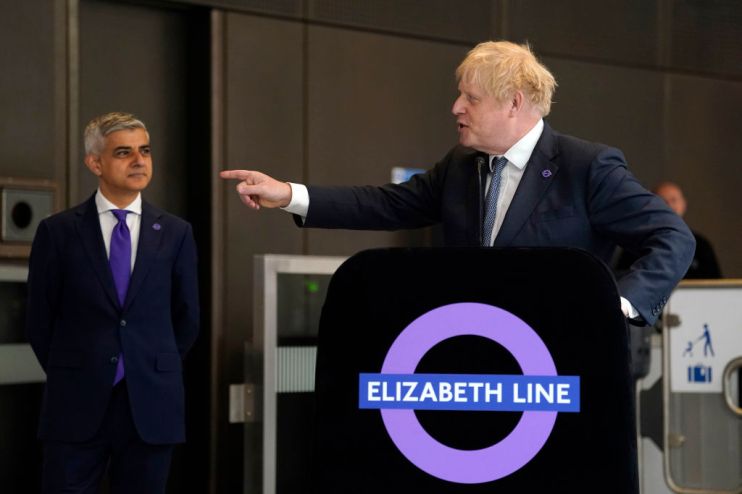Johnson’s successor has a chance to rekindle the relationship with City Hall

Transport Secretary Grant Shapps – now a contender to be the next prime minister – wrote to the Mayor three weeks ago regarding the future funding of Transport for London (TfL). His letter included a call to reset strained relations between City Hall and the government. Last week’s events were probably not quite the reset Shapps had in mind.
With Boris Johnson gone – at least as prime minister – it’s time to ask what this political turmoil will mean for London. Will the hostile rhetoric towards the city be toned down? Will London’s challenges receive the attention they need? And, crucially, will personal relations improve with London’s government?
London has been strategically unimportant to the politics of government. The city still isn’t critical to the parliamentary arithmetic of the large Conservative majority. Key battleground seats continue to be in the midlands and the north. As the next general election looms into sight, expect both main parties to concentrate their campaigning energies in these areas outside London.
On top of that, the government has a Labour Mayor and a majority of Labour councils in London to work with for the remainder of their term in office. Whitehall and No10 will need to find a way to cohabit.
We can’t yet predict whether the hostile language towards the city – sometimes used to court votes in these so-called red-wall seats – will be tempered. But given that the prime minister’s own MPs criticised him for causing divisions by focusing on wedge issues, they might be looking for a more consensual successor. Could it be a one-nation Conservative who doesn’t bash London for the sake of votes in the Red Wall?
Changes at the top could also see a different approach to fiscal policy. Grumblings from Tory backbenchers at increasing taxes might see the new Chancellor pressured to cut taxes and reduce public spending. This wouldn’t bode well for London, particularly when it comes to how to plug the ongoing gap in TfL’s finances.
Nadhim Zahawi continuing as Chancellor could be good news for London. Mayor Sadiq Khan and Zahawi know each other well, having served together as Wandsworth councillors and worked closely during the pandemic when Zahawi was vaccines minister.
And personal relationships matter, particularly when working across party lines. It’s no exaggeration to say that the hostility between City Hall and government is the worst since the mayoralty was established. Soured relations between an increasingly Labour capital and a Conservative government, made worse by personality clashes, have impacted the attention given to London’s needs.
The Mayor is a pugilist and a political fighter, but he’s also perfectly capable of working with the government. He has maintained positive relations with a number of ministers during his time at City Hall, often built on his time in Parliament. As well as Zahawi, this includes Sajid Javid, Michael Gove and Amber Rudd plus Cameron, Osborne and May.
Ordinarily, a former Mayor as prime minister ought to be an advantage. Knowing the capital and the inner workings of City Hall provides an understanding of the challenges ahead.
Yet this hasn’t been the case with Johnson. Relations worsened once he took his post at Downing Street. There was a clear deterioration in the political significance of London to the government’s majority post 2019.
But there was more. Many of the inner circle at No10 were also ex-City Hall. Some of the battles – most notably on policing and crime, and on TfL funding – smack of fighting old contests or trying to deliver on unfinished business not achieved during Johnson’s eight years as Mayor.
Sometimes too much knowledge can be a bad thing. By exerting pressure on the Mayor – notably on TfL pensions and driverless trains – the government knew precisely the industrial unrest it would likely stir up.
Might there have been a dose of No10 thinking they did and could do a better job than Khan? There could also be a tinge of resentment at the size of the current Mayor’s victories, being considerably larger than Johnson’s two wins. These things matter given the egos of some politicians.
With the exit of Johnson, those around him will also likely leave the stage, presenting an opportunity to reset relations between City Hall and No10. This matters, because London’s future success can’t be taken for granted post-pandemic. With so much of the financial clout still in the hands of Whitehall, London needs the government at this uncertain time.
